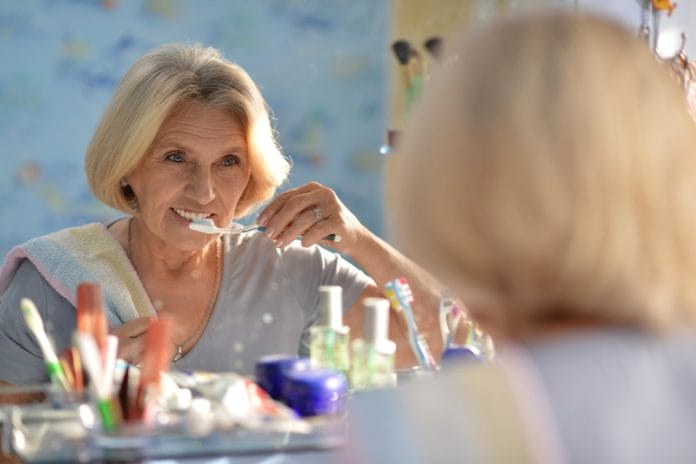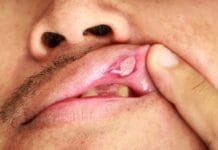This is Part 2 of the Oral Care Training for Assisted Living Staff. Part one explored the steps of creating a program to educate staff in general tooth brushing and basic daily home care in assisted living settings. Part two explores training staff in toothbrush storage and sanitation.
Toothbrush storage and sanitation play a vital role in any residential or day program oral hygiene care. After initial training of assisted living staff is complete and implemented, the agency is committed to brushing, which is fabulous, but now it is imperative to teach cleanliness and appropriate storage of products to alleviate any cross contamination. Staff often know nothing of the multiple ways bacteria can infect each brush and potentially make residents ill, or how brushes stored wet may mold. Many group situations store toothbrushes uncovered next to an uncovered toilet, potentially allowing fecal matter to splatter on the brush. It must be stressed that toothbrushes, like silverware, must be cleaned thoroughly and stored properly.
There are multiple options for toothbrush storage depending on the particular agency. Some will use individual covered holders that hold both brush and paste. These can be purchased from a variety of sources; some are designed to be used as a cup for rinsing and have vented holes to allow for appropriate brush drying. Some agencies prefer uncovered holders, such as a reusable cup which can be used for rinsing as well. Several agencies store home care products in the same bin as shampoo and body lotions, which can lead to spills and contamination. Some agencies store brushes loose in a bathroom drawer which does not allow them to dry, and mixes other products, potentially causing confusion on which items are for dental care. It has been reported that clients will apply other products to the brush if they are shaped like a toothpaste tube, potentially causing illness. Most importantly is to find a solution that will be simple to use for both staff and client to make tooth brushing easy and convenient while remaining sanitary.
Suggest agencies replace toothbrushes monthly even if bristles are not frayed or showing signs of wear. This schedule removes the guesswork of when its replacement is needed and creates less opportunity for contamination and splayed bristles. Reinforce replacing toothbrushes after an illness or if it falls and becomes contaminated. It is the most time efficient for dental supplies to be stored close to client bathrooms or where other hygiene supplies are kept to ensure adequate replacement.
Remember that it is not just assisted living facilities, but developmental needs day programs, day care for both senior and children, rehabilitation centers, residential programs, nursing homes, and special needs schools that can benefit from daily thorough brushing and appropriate sanitation and storage of dental supplies.
There are multiple sites for researching toothbrush storage systems including medical supply, dental supply, Amazon and Pinterest. Many agencies will be on a limited budget so something as simple as a disposable plastic cup, labeled with client name, and stored not touching any other persons’ items can be utilized. Clearly label the brush handle and paste with the client’s name.
Multiple client cups can be easily stored in a large plastic bin to take out at one time for group use. Remind staff and clients after use rinse well, shake off excess water, and store with bristles upright in an area where nothing else will touch it. It is often useful to discuss how staff should store their own personal dental hygiene items in a safe and sanitary manner as well. By making the presentation personal, more staff will take ownership of seeing the importance. Good examples include preventing themselves and their family from sharing illnesses.
It is fun and entertaining to bring photos or a presentation of unsanitary and splayed overused toothbrushes to compare with pristine fresh items. Not surprising, the nastier, the more entertaining! Make your presentation fun, informative, and concise always leaving time for questions.











